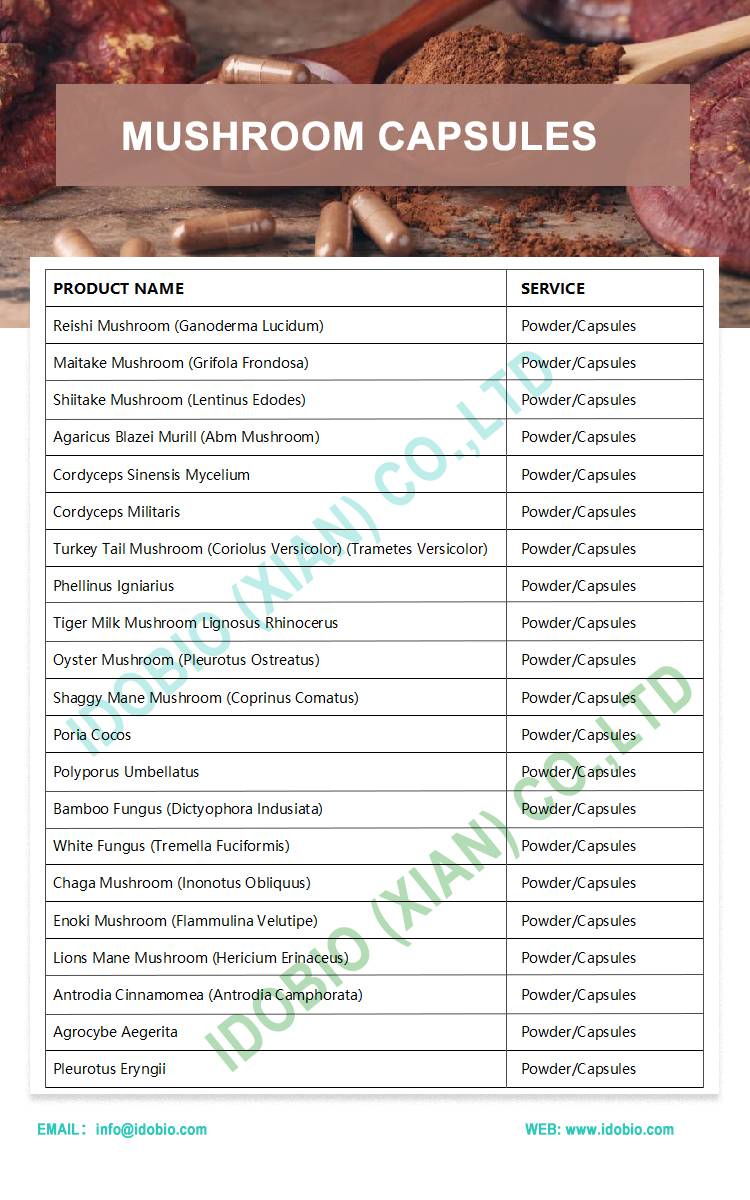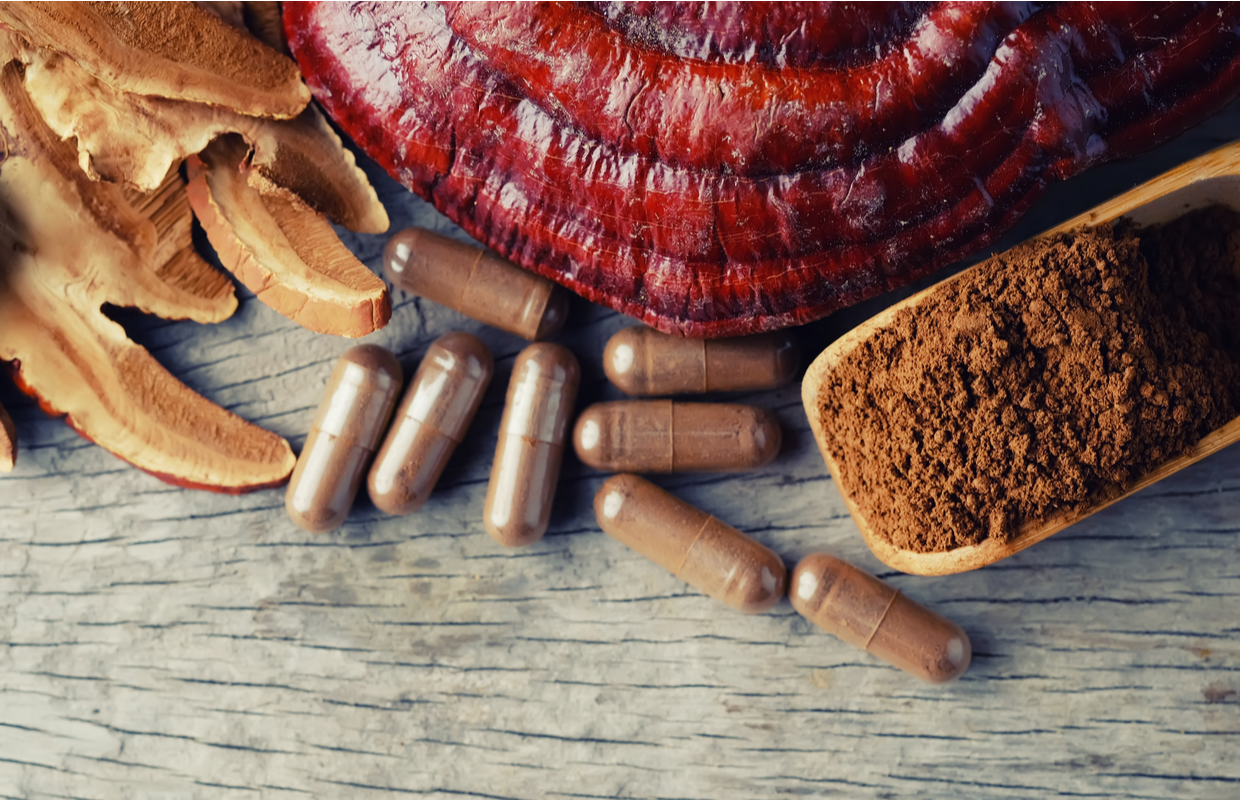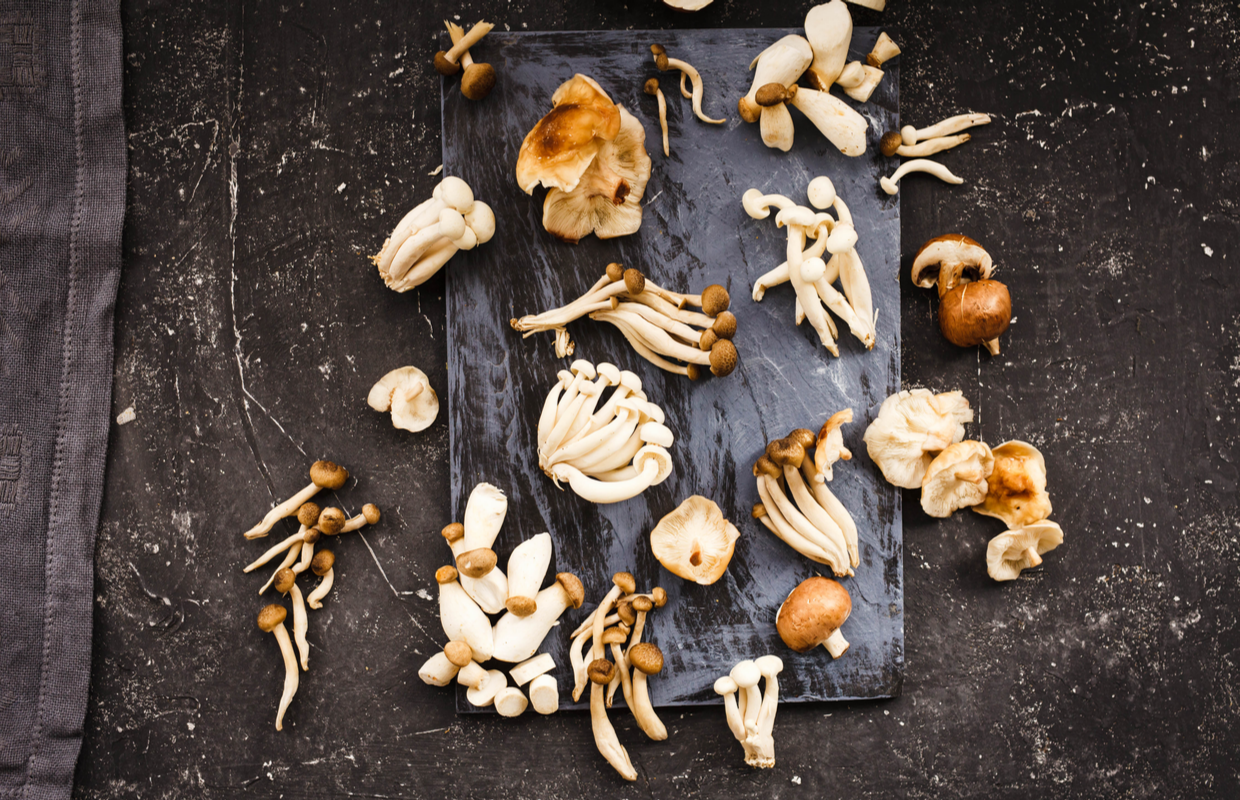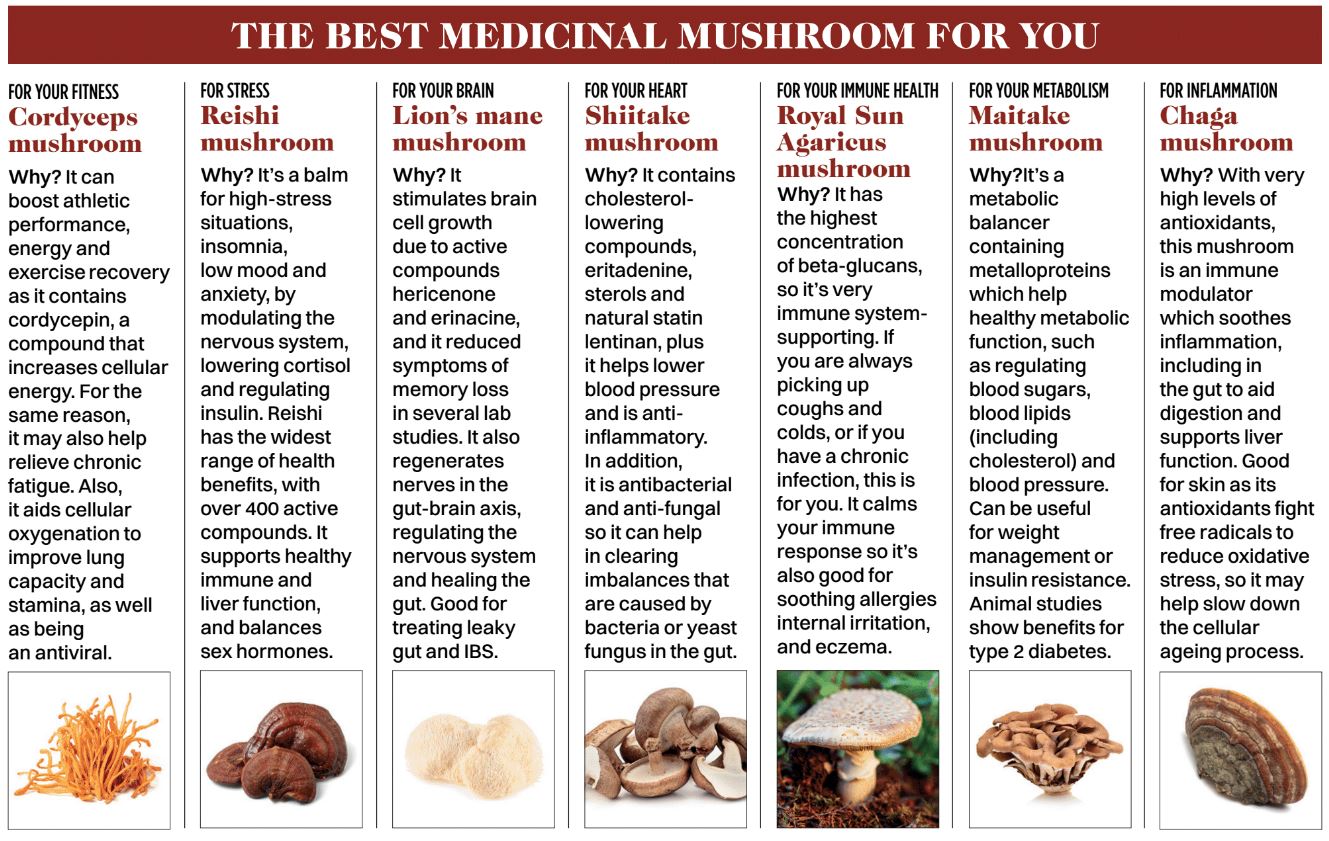Contact Us
For Product Pricing, Customization, Or Other Inquiries:
Contact Supplier
Call Us
Medicinal mushrooms: 7 types and their health benefits
Brimming with potent bioactive compounds, medicinal mushrooms offer a range of benefits for your physical and mental health. Find out how to use these fabulous fungi to improve your wellbeing…
Much more than a tasty addition to your breakfast omelette, mushrooms pack a potent punch as a natural way to boost your health and wellbeing. Benefits of medicinal mushrooms include improving mood, gut health and immune support.
Surprisingly, mushrooms aren’t plants but are actually fungi, a scientific classification which includes yeast and mould. There are more than 10,000 known types of mushrooms, with approximately 270 species flagged as potentially useful for health.
Nothing to do with psychoactive ‘magic mushrooms’, medicinal fungi are an increasingly popular food supplement, usually taken in powder form for health benefits. So, what’s all the fuss about?
How healthy are mushrooms?
‘Mushrooms are nutrient-rich, containing all nine essential amino acids, B and D vitamins, plus minerals such as zinc, potassium and magnesium, as well as prebiotic fibre to improve your gut microbiota,’ says Hania Opienski, a mycotherapy specialist at mushroom bioscience company, Hifas da Terra (hifasdaterra.co.uk).
Mycotherapy is the use of mushroom compounds for health. Although a newly growing trend in the UK, certain types of mushrooms have been used as health-boosters in traditional medicine for thousands of years. Medicinal mushrooms include reishi, cordyceps, lion’s mane, chaga and shiitake.
Now, science is decoding the specific compounds contained within them, which can have powerful immune-supporting, antioxidant and anti-inflammatory effects on your body.

Medicinal mushrooms contain beta-D-glucans
‘A key bioactive compound is beta-glucan, a soluble fibre polysaccharide also found in oats and seaweed. But medicinal mushrooms contain beta-D-glucans, which are more easily utilised by your body. Beta-D-glucans are biological response modifiers, meaning they maintain balance in your body and can help calm or increase your immune response, depending upon what your body needs,’ .
Terpenes are found in medicinal mushrooms
Another powerhouse mushroom compound is terpene, found in lab tests to protect the liver, lower cholesterol and blood sugar, be antioxidant, anti-inflammatory and antibacterial.
‘Terpenes are the aromatic compounds that give scent to fruit and veg. They act on your body’s endocannabinoid system as natural pain and inflammation reducers. So, terpenes in medicinal mushrooms may reduce the symptoms of chronic disease by dampening down inflammation. In the same way, they can aid recovery from injury or muscle recovery after exercise,’ says Opiensk.
Medicinal mushrooms are adaptogens
True multi-taskers, medical mushrooms are also adaptogens, which means they help your body maintain homeostasis (balance) for optimal health. ‘Mushroom adaptogens modulate your stress response. Stress drives inflammation so can make other conditions worse, as well as increasing blood sugar. Adaptogens calm your stress response to help your body cope with stress,’ .
The mushrooms cordyceps, reishi and lion’s mane are particularly powerful adaptogens. Cordyceps extract significantly reduced fatigue and stress in a lab test, while another scientific trial found lion’s mane reduced inflammatory responses linked to stress and had an antidepressant-like effect. Reishi extract reduced stress-induced brain inflammation, in a lab test.
Discover the unique benefits of different types of medicinal mushrooms in the chart below…

Health benefits of different medicinal mushrooms
Best medicinal mushroom for inflammation: chaga mushroom
With very high levels of antioxidants, chaga mushroom is an immune modulator which soothes inflammation, including in the gut to aid digestion and supports liver function. Good for skin as its antioxidants fight free radicals to reduce oxidative stress, so it may help slow down the cellular ageing process.
Best medicinal mushroom for fitness: cordyceps mushroom
Cordyceps mushroom can boost athletic performance, energy and exercise recovery as it contains cordycepin, a compound that increases cellular energy. For the same reason, it may also help relieve chronic fatigue. Also, it aids cellular oxygenation to improve lung capacity and stamina, as well as being an antiviral.
Best medicinal mushroom for stress: reishi mushroom
Reishi mushroom is a balm for high-stress situations, insomnia, low mood and anxiety, by modulating the nervous system, lowering cortisol and regulating insulin. Reishi has the widest range of health benefits, with over 400 active compounds. It supports healthy immune and liver function, and balances sex hormones.
Best medicinal mushroom for brain health: lion’s mane mushroom
Lion’s mane mushroom stimulates braincell growth due to active compounds hericenone and erinacine, and it reduced symptoms of memory loss in several lab studies. It also regenerates nerves in the gut-brain axis, regulating the nervous system and healing the gut. Good for treating leaky gut and IBS.
Best medicinal mushroom for heart health: shiitake mushroom
Shiitake mushroom contains cholesterol-lowering compounds, eritadenine, sterols and natural statin lentinan, plus it helps lower blood pressure and is anti-inflammatory. In addition, it is antibacterial and anti-fungal so it can help in clearing imbalances that are caused by bacteria or yeast fungus in the gut.
Best medicinal mushrooms for immune health: Royal Sun Agaricus mushroom
The Royal Sun Agaricus mushroom has the highest concentration of beta-glucans, so it’s impressively immune system-supporting. If you are always picking up coughs and colds, or if you have a chronic infection, this is for you. It calms your immune response so it’s also good for soothing allergies, internal irritation, and eczema.
Best medicinal mushroom for boosting metabolism: maitake mushroom
The maitake mushroom is a metabolic balancer containing metalloproteins which help healthy metabolic function, such as regulating blood sugars, blood lipids(including cholesterol) and blood pressure. Can be useful for weight management or insulin resistance. Animal studies show benefits for type 2 diabetes.
Medicinal mushrooms benefits chart

How to take medicinal mushrooms
The bit of the mushroom you put on your pizza is called the fruiting body. This is the most potent part of the fungus. So, you should look for supplements containing the fruiting body.
Other parts, such as the mycelium (roots) or spores (seeds) also contain beneficial compounds but often to a lesser extent. The biggest benefit comes when you eat the whole mushroom. So, check that your supplement contains all parts of the mushroom.
Combine the types of mushroom your consume
‘Mushrooms work in synergy with each other, meaning you get better health benefits from the active compounds by taking different mushrooms at the same time. Use a mushroom blend product or mix and match your own combination with single mushroom supplements,’ .
Medicinal mushrooms dosage guide
Medicinal mushrooms are dose-dependent, meaning if you are in good health with a healthy body weight, a lower dose will benefit you. But if you have a chronic condition, such as asthma, diabetes or arthritis, or you have a higher bodyweight, you may need a higher dose to see benefits.
‘To maintain good health, 1,000mg daily of whole mushroom powder is enough to benefit. But for a therapeutic purpose, use an extract rather than a whole powder. Extracts are much more powerful than whole powders as the less active ingredients, such as insoluble fibre and protein, are removed. So, the active compounds are more concentrated. Try one or two 500mg extract capsules per day for a few weeks,’ .
Choosing a medicinal mushroom supplement
When selecting supplements, look for exact amounts of active compounds, such as beta-glucans and terpenes, listed by weight on the pack. If only the total polysaccharide percentage is listed, you don’t know how much of that is starch as opposed to active compounds.
Finally, check how the mushrooms were grown as this affects the quality of your supplement. ‘Mushrooms absorb everything in their environment. If grown in a nutrient-rich environment, they absorb lots of nutrients, but if grown on a grain they absorb lots of sugars from that grain. This is why products can have a high polysaccharide count but not contain much active beta-glucan. Choose organic brands as mushrooms absorb heavy metals or pesticides,’ .






